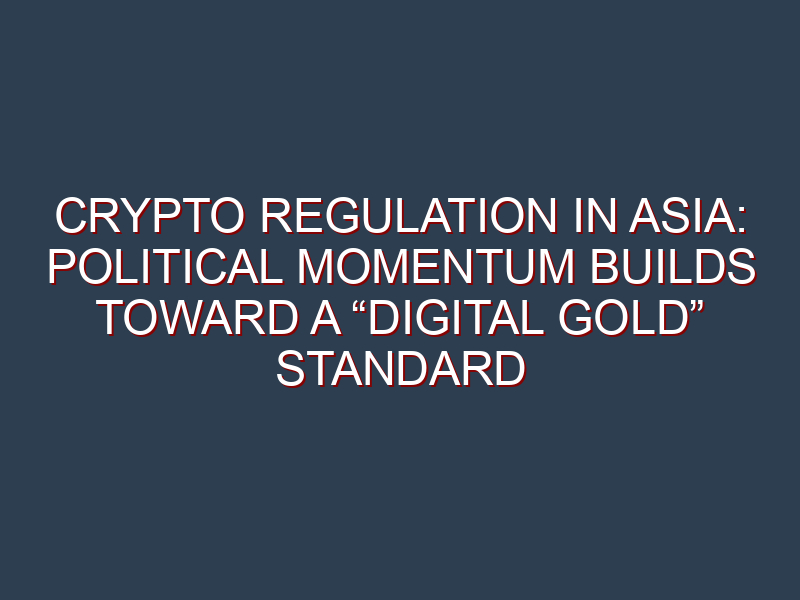Crypto’s Political Crossroads: From Wild West to Digital Gold
The Asian cryptocurrency market finds itself at a pivotal juncture, where regulation is no longer a distant threat but a present, political reality. Once viewed as untouchable digital territory, crypto is now firmly on the radar of governments across the region, as policymakers weigh how—indeed, whether—to allow digital assets to mature alongside traditional commodities like gold.
Government Motivations: Protecting Investors or Asserting Power?
Regulatory discussions sweeping across key Asian financial hubs are as much about political control as they are about investor protection. While authorities from South Korea to Singapore argue that frameworks are needed to safeguard retail traders, critics claim that much of the urgency comes from a desire to maintain state authority over new forms of value transfer. This power struggle is front and center in recent assemblies and legislative proposals, echoing regulatory efforts by global authorities such as the U.S. Securities and Exchange Commission (SEC) and the Commodity Futures Trading Commission (CFTC).
Policy in Motion: Asia’s Push Toward a Regulated Crypto “Gold Market”
What does a regulated crypto world look like? Increasingly, Asian governments appear to be eyeing the gold market as a model. Discussions in regional parliaments and regulatory agencies revolve around bringing the kind of stability, security, and transparency associated with physical gold markets to the crypto sector. Just last month, Singapore tightened its licensing regime for crypto firms, aiming to bolster both investor confidence and state oversight, while Hong Kong is fast-tracking consultation processes for stricter know-your-customer (KYC) procedures.
The Political Stakes: ASEAN, Global Influence, and Financial Autonomy
For policymakers, controlling crypto means shaping the future economic influence of their countries. Asian markets are a key battleground in the global race for fintech supremacy. The European Union’s push for the Markets in Crypto-Assets (MiCA) Regulation and the United States’ ongoing regulatory patchwork mean that Asia’s decisions will ripple worldwide. ASEAN leaders, in particular, are balancing the bloc’s ambition for greater integration against the risk of fragmented regulation.
What’s Next? Policy Decisions Loom as Markets Await Clarity
As governments across Asia work to draft and implement regulations, the crypto industry and its observers are left in suspense. Will the region pioneer a robust, gold-standard-style oversight that could set a global precedent, or will divergent political interests create patchwork rules that stifle growth? One thing is clear—the next wave of crypto regulation in Asia will be driven as much by geopolitics and state power as by concerns for market integrity.
For more on global crypto policy developments, see the latest work from the U.S. Department of the Treasury and monitor updates from regional authorities leading the regulatory charge.
Asia’s crypto scene is hurtling toward a crossroads—are traders, investors, and politicians truly ready for what comes next?





